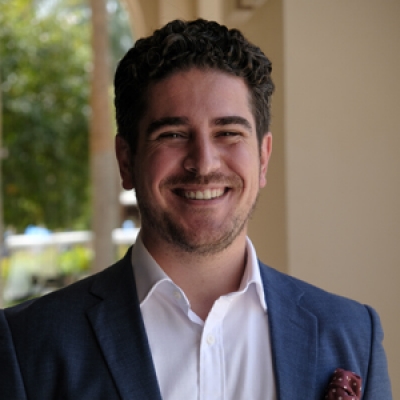What to Expect When You Visit Dubai
Many first-time travellers to Four Seasons Resort Dubai at Jumeirah Beach are curious about what to expect in terms of local culture, clothing and weather. To help you prepare for your trip, we’ve tried to answer some of the most common questions.
What is Dubai like as a city?
Dubai is one of the seven emirates (principalities) in the United Arab Emirates. Every emirate has its own unique character, and Dubai is known as remarkably open and international, making it very welcoming to other cultures.
Many people compare Dubai to Los Angeles – a large, car-oriented city on the sea. There are several distinct neighbourhoods with many high-rise buildings. The streets are remarkably clean, safe and secure. There’s an ultra-modern subway system, and even the bus stops are air-conditioned!
Oil was discovered in Dubai in 1968, leading to great wealth that the leaders shared with the native Emerati population. However, there’s less oil in Dubai than in other Gulf states, and the emir decided to establish an economy built on trade and tourism – transforming an inhospitable desert landscape into a destination so exciting and ever-changing that visitors want to return again and again.
What language do people speak?
The native language of the United Arab Emirates is Arabic. However, only about 13 percent of the population is made up of native-born Emirati. Most Dubai citizens are expats from all over the world. To facilitate communication, English is the common language.
What’s the weather like?
With its tropical desert climate, Dubai can definitely become hot, but outside the summer months, the temperatures are actually quite comfortable.
October to April are the most pleasant months, balancing sunny days and cool evenings. There’s an average daily high of 23 °C (73 °F) and overnight lows of 14 °C (57 °F). Most of the rainfall occurs from December to March, coming in short and irregular cloudbursts.
From May to September, the heat becomes more powerful. Summers are extremely hot and humid, with an average high around 41 °C (106 °F) and overnight lows around 30 °C (86 °F). Fortunately, air conditioning is very common. Another advantage is that summer is when the city offers great values – both in hotels and shopping.
How do people dress?
When out in public, local Muslim women may be seen wearing an abaya (a black cloak over their clothing), as well as a head scarf, or a burka (a full body cloak, also covering the face), while men may wear a white ankle-length kandura and a head covering.
Westerners and other non-Muslims wear typical warm-weather clothing. Men and women are allowed to wear shorts. However, a general sense of modesty is appreciated including covered arms – particularly during the holy month of Ramadan.
When on the beach or by the swimming pool, bikinis and other swimwear are permitted. However, it’s considered appropriate to cover up when departing the pool to avoid any cultural sensitivities.
Are people allowed to drink alcohol in Dubai?
Alcohol is permitted in licensed restaurants and in hotels and resorts, such as Four Seasons Resort Dubai at Jumeirah Beach. However, it can be difficult to buy alcohol in local retail establishments. Many visitors shop in the duty-free boutiques at the airport, available on arrival in Dubai.
At the same time, you might be surprised by the variety of delicious non-alcoholic drinks, including of fresh fruit juices in creative combinations, as well as tea and coffees.
What kind of money should I bring?
The currency in Dubai (and all of the United Arab Emirates) is the dirham, formally known as the Arab Emirate Dirham, or AED for short. You can buy dirhams at the airport or at bank machines with international affiliations.
For simplicity and stability, the dirham has been pegged to the American dollar at a fixed exchange rate of 3.67 dirhams to USD 1 (or one dirham equals 0.272 US dollars). For a quick conversion of prices, many travellers simply divide the AED price by four.
What’s the shopping like?
Dubai is famous as one of the best shopping cities in the world. In fact, most of the top international retailers have at least one location here. Making Dubai especially appealing, retailers here are known for stocking items that are hard to find anywhere else in the world.
You can bargain for great deals in traditional souks specialising in gold, spices and textiles, or visit massive modern malls, such as the Dubai Mall, the Mall of the Emirates, Souk Al Bahar and Souk Madinat.
The Dubai Shopping Festival in January brings huge discounts and special activities, while Dubai Summer Surprises also offers great sales from mid July to early September. Many visitors plan their trips to Dubai around these events!
What is Ramadan?
Ramadan, the Muslim holy month, is a time for worship and contemplation. To allow for complete devotion to their faith, Muslims must abide by stringent rules from dawn until sunset for an entire month. The exact dates change from year to year. During Ramadan, eating, drinking and smoking are strictly forbidden during daylight. At sunset, the fast is broken by a meal named Iftar.
If you’re visiting Dubai during Ramadan, you will notice many changes in the daily routine. This is a time of silence and no music is played. You can still smoke, drink and eat in the privacy of your hotel room or in designated areas. Alcohol and tobacco are only sold after sunset. We’ll be pleased to advise on other details.
If you have any other questions about visiting Dubai, feel free to contact the Concierge at Concierge.djb@fourseasons.com

Dubai,
United Arab Emirates



 @FourSeasonsPR
@FourSeasonsPR